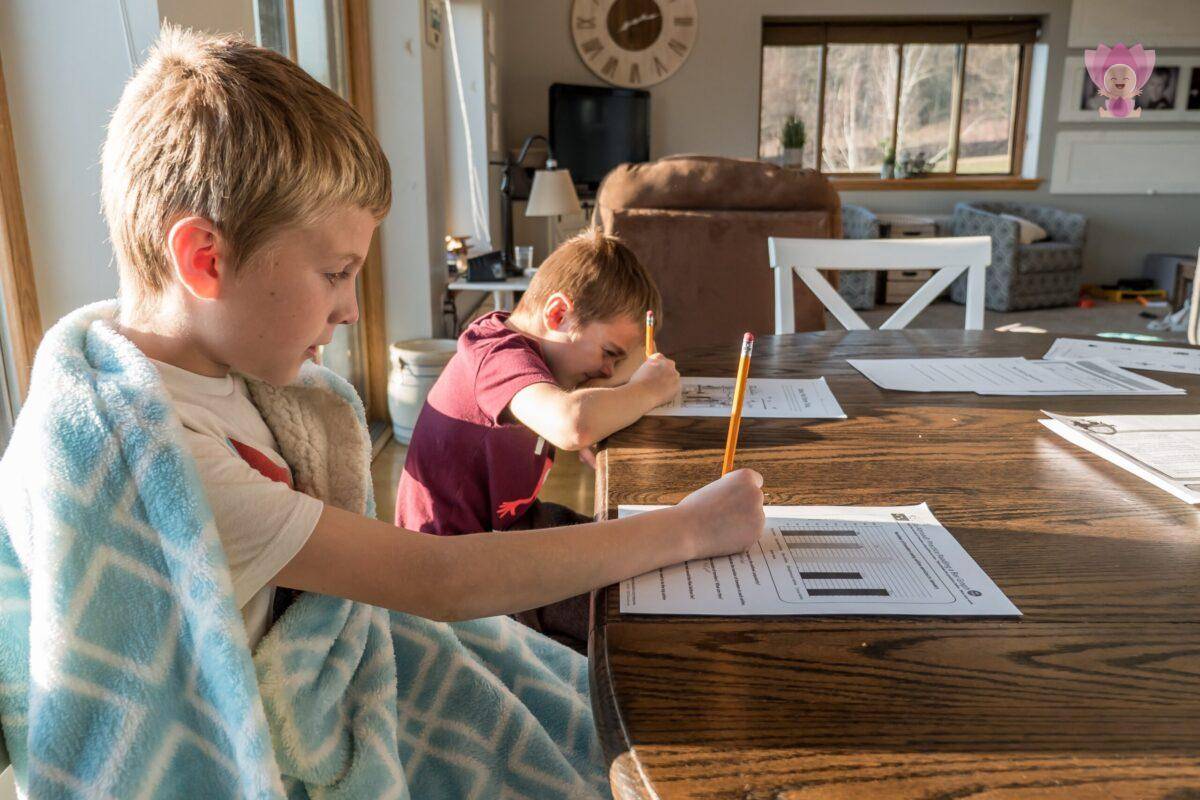How too much math homework help from parents can backfire

Key takeaways for caregivers
- Before children enter formal schooling, a good way for parents to help children learn math is through activities such as playing games that involve numbers.
- Once children enter formal schooling and have homework, these activities become less frequent. Unfortunately, parents often have more negative feelings (e.g., frustration and irritation) when they are involved in their children’s math homework than when they are involved in activities, and this can undermine children’s math learning.
- It is best for parents to let children conquer their math homework on their own or to seek information on what children are learning and how to best help so parents feel efficacious in helping.
How can parents help children learn math?
Before children enter formal schooling, many parents engage their offspring in informal math activities, such as measuring while cooking and playing games that involve numbers. These kinds of activities can help children learn key math concepts and become interested, as well as confident, in math. However, with children’s entry into formal schooling, activities of this type may occur less frequently as children have assigned homework to complete.
Unfortunately, parents often have more negative feelings (e.g., frustration and irritation) when they are involved in their children’s math homework than when they are involved in activities.
To better understand how parents can continue to help their children learn math once they enter formal schooling, we studied two primary questions:
- Is it useful for parents to get involved in their children’s math homework?
- Is math homework just as good an opportunity as math activities for parents to help children learn math?
Measuring parents’ involvement and children’s motivation and achievement in math
Our study included 483 parents of first- and second-graders in the midwestern United States. Most parents were White (67%), 17% were Black, 8% were Asian, 5% were Latinx, and 4% were another ethnicity or more than one ethnicity. Parents’ highest level of educational attainment ranged from less than a college degree (29%) to an advanced graduate degree (38%).
We asked the parents to complete a survey every day for 10 days. The parents reported on whether children had math homework and if they were engaged in math activities such as math board games or workbooks. Parents then reported on qualitative aspects of their involvement in their children’s math homework and activities – such as whether they had negative (e.g., irritated) or positive (e.g., happy) feelings.

Photo: Jessica Lewis. Unsplash.
To understand how parents’ involvement in their children’s math homework contributes to children’s math learning, we also measured children’s math motivation and achievement at two times – when we measured parents’ involvement in their children’s math learning and one year later. Children indicated how much they liked math, chose between easy and difficult math problems in making a worksheet for themselves, and took a math achievement test.
Parents’ involvement in math homework was less helpful than their involvement in math activities
We found that parents’ involvement in their children’s math homework was less constructive than their involvement in math activities: Parents tended to have more negative and less positive feelings when working on homework than they did when engaged with activities. In addition, the lower parents’ self-efficacy (e.g., having lower confidence in their ability to help with math), the more negative and less positive their emotions were when they were involved in both math activities and homework, but this was particularly true for homework.
One reason for these findings may be that some parents might feel like they do not know how to help children learn math when it comes to math homework, which may be more difficult than math activities. Children often become frustrated with homework, which may lead some parents to become frustrated as they feel out of their element in helping children. This may be particularly true in math since the Common Core curriculum used in most U.S. classrooms today often relies on different methods than parents learned as children.
Unfortunately, the more parents’ involvement in their children’s math homework was characterized by negative emotions, the more children disliked math, avoided difficult math problems in making their worksheet, and had poor math achievement a year later. Moreover, parents were more involved in math homework and less involved in math activities with older than younger children.
Together, these findings suggest that parents become less constructively involved in children’s math learning as children get older because more time is spent on math homework and less time is spent on math activities.

Photo: Monstera. Pexels.
How can parents help children learn math once they enter formal schooling?
Perhaps the best advice for parents is to refrain as much as possible from being involved with their children’s math homework. Instead, parents should stay on the sidelines, acting as cheerleaders and providing a sounding board. Parents can be encouraging when children hit a stumbling block, acknowledging their frustration and offering a hint to help them get on the right track.
Perhaps the best advice for parents is to refrain as much as possible from being involved with their children’s math homework.
If that is not effective, parents can suggest that children ask their teacher the next day about how to do the work. During elementary school, children usually do not have to turn in mistake-free homework. If parents feel they need to step in, it might be helpful to seek out advice – for example, from the teacher – about what their children are learning in math and how best to help.
Recommendations for math teachers working with parents and children
Teachers might think about how they can steer parents away from being involved in children’s math homework (for example, by communicating that mistakes on homework are part of the learning process, so parents do not need to be as closely involved) or assist parents in feeling efficacious in helping. In the early years of schooling, this may be as simple as telling parents they do not need to know a lot about math and giving them information on what children are learning along with a few tips on helping their children.
















Leave a comment